![L-R Gbenga Komolafe, Chief Executive Officer of the Nigerian Upstream Petroleum Regulatory Commission (NUPRC), Heineken Lokpobiri, Minister of petroleum Resources [oil], Aliko Dangote, Chairman and CEO of Dangote Group, Mele Kyari, Group Chief Executive Officer of the Nigerian National Petroleum Corporation Limited (NNPC), Farouk Ahmed, Authority Chief Executive of the Nigerian Midstream and Downstream Petroleum Regulatory Authority (NMDPRA) after a closed-door meeting to resolve the Dangote Refinery Impass](https://i0.wp.com/media.premiumtimesng.com/wp-content/files/2024/07/WhatsApp-Image-2024-07-22-at-20.41.50_10cfd8e4.jpg?resize=1920%2C1080&ssl=1) L-R Gbenga Komolafe, Chief Executive Officer of the Nigerian Upstream Petroleum Regulatory Commission (NUPRC), Heineken Lokpobiri, Minister of petroleum Resources [oil], Aliko Dangote, Chairman and CEO of Dangote Group, Mele Kyari, Group Chief Executive Officer of the Nigerian National Petroleum Corporation Limited (NNPC), Farouk Ahmed, Authority Chief Executive of the Nigerian Midstream and Downstream Petroleum Regulatory Authority (NMDPRA) after a closed-door meeting to resolve the Dangote Refinery impasse.
L-R Gbenga Komolafe, Chief Executive Officer of the Nigerian Upstream Petroleum Regulatory Commission (NUPRC), Heineken Lokpobiri, Minister of petroleum Resources [oil], Aliko Dangote, Chairman and CEO of Dangote Group, Mele Kyari, Group Chief Executive Officer of the Nigerian National Petroleum Corporation Limited (NNPC), Farouk Ahmed, Authority Chief Executive of the Nigerian Midstream and Downstream Petroleum Regulatory Authority (NMDPRA) after a closed-door meeting to resolve the Dangote Refinery impasse.I will argue that what is required, at this time, is what we usually refer to, as the ‘political solution’. There has to be a way to find a win-win solution that will have all the parties on the same table. After all, both Dangote and NNPC have the national interest as their primary concern. What the Dangote Refinery needs is crude oil, which, for different reasons, is not readily available. I believe that the involvement of AfreximBank in the naira-for-crude arrangement points us in the direction through which a resolution to the dispute can be found.
When the news broke in January this year that the Dangote Petroleum Refinery was finally commencing operations, coming after years of delays and postponements of the start of production, there was palpable relief across the land that we were finally on the journey to ending the decades-long regime of spending tens of billions of dollars on the importation of refined petroleum products. This came after the refinery had confirmed receipt of the sixth batch of one million barrels of crude cargoes required for the commencement of its operations, starting with the production of diesel and aviation fuel.
The events of the last two months have, however, been rather dampening, starting with the statement by the Vice President, Oil and Gas, at Dangote Industries Limited, Devakumar Edwin, accusing international oil companies (IOCs) in Nigeria of frustrating the Dangote Refinery “to ensure that Nigeria remains a country which exports Crude Oil and imports refined Petroleum Products.” He particularly ruffled the feathers of the Nigerian Midstream and Downstream Petroleum Regulatory Authority (NMDPRA) with the allegation that even though they are producing and supplying the local market with diesel, “…licences are being issued, in large quantities, to traders who are buying the extremely high sulphur diesel from Russia and dumping it in the Nigerian Market.”
Farouk Ahmed, the CEO of NMDPRA, then fired back, claiming that, “Dangote refinery is still in the pre-commissioning stage. It has not been licenced yet. We have not licensed them yet. I think they are at about 45 percent completion. So, we cannot rely heavily on one refinery to feed the nation because Dangote is requesting that we should suspend or stop all importation of petroleum products, especially automotive gas oil (AGO) or jet kero, and direct all marketers to the refinery… Dangote refinery, as well as some major refineries like Waltersmith refinery, produce between 650 ppm to 1,200 ppm (of sulphur in their diesel). So, in terms of quality, their quality is much more inferior to the imported quality.”
Things were to escalate quickly to a point in which the Dangote Refinery became ensnared, not just in a back-and-forth with the Nigerian Midstream and Downstream Petroleum Regulatory Authority (NMDPRA), but also with the Nigerian Upstream Petroleum Regulatory Commission (NUPRC), and the public-owned enterprise, the Nigerian National Petroleum Company Limited (NNPC Ltd), over the circumstances that led to the company pulling back from consummating its plan to pay the $1.76 billion balance of the cost of its equity investment in Dangote, which would have taken its stake to 20 per cent. NNPC Ltd, speaking through its Chief Corporate Communications Officer, Olufemi Soneye, was measured, explaining that in line with the periodic assessment of “its investment portfolio to ensure alignment with the company’s strategic goals,” “NNPC Limited had taken the decision to cap its equity participation at the paid-up sum (and this) was made and communicated to Dangote Refinery several months ago.”
NNPC Limited has largely maintained that restraint, apparently with an eye on its place in the industry and the nation, cognisant of the weight of its words in the minds of the public, especially foreign investors, and the national interest. But that reticence suffered a bit of rupture last week when the GCEO Mele Kyari addressed the Senate Ad-Hoc Committee investigating alleged economic sabotage in Nigeria’s petroleum industry. His frustration at the spate of attacks on his person and the organisation he leads was evident. While his request for a live transmission for a no-holds-barred public session is commended, there needs to be a thought for the implications of such a session for the fragile investment climate in the industry and the overall national interest of the country.
One would think that the issues that have pitched Aliko Dangote, the largest single investor in the industry with one of the largest refineries in the world, on the “war path” with regulators in the industry are not beyond what can be resolved in the boardroom, rather than at a public sitting in the National Assembly.
While the issues between Dangote Refinery and the NMDPRA over the status of the refinery, the quality of its products, and the licensing of importers of AGO have largely receded from public discussion, that relating to the sourcing of crude has bubbled to the top. NNPC GCEO, Mele Kyari, makes the point that the refining business is straightforward. “You must secure your feedstock and find a market. This is basic and determines what happens in any refinery worldwide.” But it has not been that straightforward with the Dangote Refinery, perhaps because its operation is still at a teething stage.
Nigerians need credible journalism. Help us report it.
PREMIUM TIMES delivers fact-based journalism for Nigerians, by Nigerians — and our community of supporters, the readers who donate, make our work possible. Help us bring you and millions of others in-depth, meticulously researched news and information.
It’s essential to acknowledge that news production incurs expenses, and we take pride in never placing our stories behind a prohibitive paywall.
Will you support our newsroom with a modest donation to help maintain our commitment to free, accessible news?
The suggestion among some in the industry is that Dangote Refinery Limited had not on a timely basis made plans for securing feedstock, while some argue that it might have leaned too heavily in its planning on the arrangement with NNPC Limited, which had come with a guarantee of 300,000 bpd. But then, NNPC claims to have informed Dangote months back that it was no longer interested in taking up the balance of the equity, effectively pulling a plug on the agreement or obligation for the supply of crude to it. One would think that the decision by the NNPC Limited could not have been taken on a whim and that Dangote would have gotten a hint of the change of mind on the part of NNPCL early enough to have enabled it to ramp up efforts for alternative sources of feedstock.
Indeed, some have argued that given the nature of the oil business, with production largely pre-financed and lessees tied to long-term contracts, which are not easy or advisable to break, anyone building a refinery with such enormous capacity would have been better served entering into contracts for feedstock years back, especially given that it has had to shift the commencement date for production several times.
Whatever the case is, it is difficult to believe that Dangote Refinery could have had expectations that its requirement for crude would be fully met through supply from NNPC limited and other domestic operators, many of whom claim pre-production commitments to financiers and traders; apart from obligations under the Domestic Crude Oil Supply Obligation (DCSO) to other refineries. The argument is made by some that the Dangote Refinery is, in fact, better served sourcing crude from sources outside of Nigeria, as it has been doing, not only for non-availability of supply, but some technical reasons.
But this is not to summarily dismiss Dangote Refinery’s push for supply of crude based on the Domestic Crude Oil Supply Obligation (DCSO), as enunciated under section 109(2) of the Petroleum Industry Act (PIA), and simply wave a pass at the Nigerian Upstream Petroleum Regulatory Commission (NUPRC), without asking questions. Indeed, the objective of the regulations by the NUPRC, as a regulator, is “to provide the general rules for the curtailment of production and utilisation of the produced Petroleum in terms of Export and Domestic Supply.” In that wise, the NUPRC is supposed to “establish a national supply curve for the supply of crude oil to the domestic market which shall be an aggregate of the crude oil requirement by all the refineries in operation in Nigeria.” The Commission affirms that it shall take all necessary steps that will be required that there is no case of “inadequate supply of the Domestic crude oil obligations from the lessees and…obtain details of shortages or inadequate supply conditions” for sanctions.
How much of that oil is available to NNPC, after it has met its obligations under the forward sales agreements and other contracts, having made provision for supply to its refineries, is better imagined. How much of the oil can be made available to Dangote Refinery, in recognition of its place as a critical national asset, even though it is largely privately-owned? I think that resolving this would take more that Dangote Refinery waving Section 109 of the PIA at the NUPRC to compel the operators to meet any shortfall in domestic supply to local refineries.
Such is the extent of the power invested in the NUPRC under Section 4(8) of the Regulation that it has the power not to grant an export permit for the export of crude oil from its lease area to a lessee (operator) who has not complied with his DCSO, where a willing buyer(s) exist(s). The regulation also provides that “a lessee who fails to comply with the DCSO shall incur a penalty of 50% of the Fiscal Price per barrels not delivered, payable to the Commission.”
It is in line with the fulfilment of these obligations that the Nigerian Upstream Petroleum Regulatory Commission (NUPRC) has met with crude oil producers and refinery owners in Nigeria at different times, as the issue of non-compliance with these obligations has been there for a long time, even before the Dangote Refinery began operations. Some of the complaints that have come to the fore, according to Gbenga Komolafe, CEO of NUPRC, include failure to factor in the provisions of the law while executing contracts, and reluctance to allocate for domestic refineries, financial and operational issues with loading.
Despite this, the Nigerian Upstream Petroleum Regulatory Commission’s (NUPRC) claims to have facilitated the provision of crude to nine refineries over time, using the instrumentality of the DCSO. Between 2019 and 2021 when the Petroleum Industry Act (PIA) came into effect, 1,726,049 barrels of oil were supplied to two refineries – Waltersmith and NDPR, according to the NUPRC. Post-PIA, 3,614,936 barrels were supplied to these two refineries, as well as OPAC Refinery, between September 2021 and May 2023, while Edo Refinery later received the allocation to cover three months. For the first half of this year, NUPRC claims to have enabled the supply of 32,088,122 barrels of crude, with 29,047,098 barrels of the lot meant for Dangote Refinery, which has denied receiving such, insisting in a statement it issued that, “aside from the term supply we bilaterally negotiated with NNPC, so far NUPRC has only facilitated the purchase of one crude cargo from a domestic producer. The rest of the cargoes we have processed were purchased from international traders.” Going further, Dangote interpreted the statement by the NUPRC as an admittance of the fact that it is “unable to enforce the domestic crude supply obligation.”
I doubt, however, that the issue at hand is merely that of the regulator’s inability to enforce the DCSO or a refusal by NNPC or IOCs to meet domestic crude supply obligations. Indeed, as it has been established, there are encumbrances on account of previous agreements entered into by lessees, as the DCSO cannot invalidate valid contracts by fiat. But beyond that, even as the DCSO charges the Commission in Section 4(2) “to establish a national supply curve for the supply of crude oil to the domestic market which shall be an aggregate of the crude oil requirement by all the refineries in operation in Nigeria” while also stating in Section 4(6) that “the volume of crude oil that a lessee shall dedicate to the DCSO shall be based on an allocation system determined by the Commission”, my reading of the DCSO moderates, in my opinion, the “powers” of the NUPRC in enforcing the domestic crude supply obligation.
Section 3(1) states that “the Commission shall base the allocation of the domestic crude oil supply obligation applicable to the respective lessees on the National Crude Oil Demand requirement supply curve, which is the supply curve of crude oil or condensate that can be supplied ON A VOLUNTARY BASIS at the prevailing international market price,” which suggests to me that this is more about persuasion than coercion. Yet, apart from the overriding clause of “willing buyer, willing supplier,” there are other constraints in the way of a blanket enforcement by the Commission, which though not stated, grants it the discretion to not penalise an operator for a perceived breach for “any other reason” acceptable to it.
It would appear that with the attention the issue has received, NUPRC is playing closer attention, going forward. For the second half of this year (July-December), the aggregate crude demand for all Nigerian refineries, according to the NUPRC, is 107.22 million barrels, with Dangote Refinery’s requirement alone being 82 million barrels. Port Harcourt Refinery and Warri Refinery will require nine million barrels, and 11.4 million barrels, respectively. Also, with 52 oil producers expected to supply crude during the period, NUPRC projects a national average crude oil production of 1.7 million bpd from 52 oil producers over that period.
How much of that oil is available to NNPC, after it has met its obligations under the forward sales agreements and other contracts, having made provision for supply to its refineries, is better imagined. How much of the oil can be made available to Dangote Refinery, in recognition of its place as a critical national asset, even though it is largely privately-owned? I think that resolving this would take more that Dangote Refinery waving Section 109 of the PIA at the NUPRC to compel the operators to meet any shortfall in domestic supply to local refineries.
The government announced last month that the Federal Executive Council has “adopted a proposal by President Tinubu to sell crude to Dangote Refinery and other upcoming refineries in Naira…to ensure the stability of the pump price of refined fuel and the dollar-Naira exchange rate.” I think, however, that finding a solution goes beyond this directive. In the first place, a similar decision was announced by the previous administration in 2021, but that apparently did not catch up with practice, even though the PIA provides for payment in either currency and the Crude Oil Refinery Owners Association of Nigeria have been clamouring for it. Perhaps, it is the complexity of this arrangement that compelled the government to involve the AfreximBank in the preparation of a framework for the execution of that directive.
The issue at hand appears to be more of how to sustain liquidity for its operations, given the steep financial requirement for maintaining a steady supply of crude from the international market at an agreeable rate. Obviously, this pressure would be reduced if more feedstock can be sourced in the domestic front, as that offers more elbow room for leverage and other consideration, than the shark-infested international waters in which the oil business thrives. This must explain the movement in the direction of the NNPC by Dangote Refinery for possible solutions.
I think that should start from a recognition and acceptance that mistakes have been made. I will argue that what is required, at this time, is what we usually refer to, as the ‘political solution’. There has to be a way to find a win-win solution that will have all the parties on the same table. After all, both Dangote and NNPC have the national interest as their primary concern. What the Dangote Refinery needs is crude oil, which, for different reasons, is not readily available. I believe that the involvement of AfreximBank in the naira-for-crude arrangement points us in the direction through which a resolution to the dispute can be found. I will recommend that the framework by AfreximBank should be configured as a crude for equity deal, as was originally envisioned, but this time, with the Bank involved.
Going forward, NNPCL is expecting to soon have its refineries returning to operations, starting with the one in Port Harcourt, which would require feedstock as well. That might then suggest that NNPCL is encumbered on too many fronts to be able to successfully meet the demand by Dangote Refinery Limited for a 300,000 bpd delivery. Is there room for AfreximBank to ‘restructure’ the current 90,000 barrels per day deal tied to the US$3.3 billion crude oil prepayment facility to accommodate the proposal for crude for equity, or structure a new deal around it?
The consideration behind the decision reached by the NNPC Limited in 2021 to enter into an equity-crude swap, with a pledge of 300,000 barrels per day (bpd) of crude oil for a 20 per cent stake in the Dangote Refinery at $2.76 billion, needs to be revisited as a matter of urgency. What served as motivation in the past can help, not only in resolving the current logjam but charting the future in the interest of both companies and overriding national interest. Just as the initial investment of $1 billion in Dangote Refinery came through a Forward Sales Agreement with Lekki Refinery Funding Limited, the window of payment for the equity can be reopened by Dangote, with NNPC Limited paying the balance of the cost of equity “via a combination of a $2.5/bb1 discount (on the official selling price) per barrel on 300,000 barrels per day to DPRP FZE, and 100% of NNPC’s portion of any dividend declared by DPRP FZE throughout the repayment period,” as originally agreed between the two entities.
This recommendation, as simple as it might look, is not that simple. The elephant in the room is the non-availability of crude. With massive oil theft hampering production levels, there are other Forward Sales Agreements, as well as other contracts that put NNPC Limited under intense pressure. Early this year, the Nigerian National Petroleum Company Limited (NNPCL sponsored a syndicated US$3.3 billion crude oil prepayment facility arranged by the African Export-Import Bank (Afreximbank), “so that Nigeria can maintain the stability of its currency, the naira, and increase its foreign exchange reserves.” That facility is said to have been tied to a commitment of 164.25 million barrels of crude oil, at 90,000 barrels per day.
If the NNPC is still running the DSDP Scheme, through which it swaps the bulk of the 445,000 bpd it receives as allocation for domestic use in exchange for refined petroleum products, which it has been deploying to meet the needs of the local market, below the market rate, to ensure supply and energy security, that is a commitment it cannot afford to compromise, until there is an alternative on the domestic front that comes with a guarantee of enough supply. Going forward, NNPCL is expecting to soon have its refineries returning to operations, starting with the one in Port Harcourt, which would require feedstock as well. That might then suggest that NNPCL is encumbered on too many fronts to be able to successfully meet the demand by Dangote Refinery Limited for a 300,000 bpd delivery. Is there room for AfreximBank to ‘restructure’ the current 90,000 barrels per day deal tied to the US$3.3 billion crude oil prepayment facility to accommodate the proposal for crude for equity, or structure a new deal around it?
It is not too late to get everyone back in the boardroom to fashion out a win-win solution, with Nigeria’s energy security and national interest guaranteed. One of the stated objectives, according to Dangote in setting up the Refinery, is for Nigeria’s energy security. The same interest is what motivated NNPC Limited to invest in the Dangote Refinery, while recommitting itself to the rehabilitation of its refineries. It defies logic that NNPC Limited, having invested $1 billion for a 7.2 per cent stake in the Dangote Refinery will want to sabotage it.
While NNPC has deemed it necessary to move more in the direction of gas development, in line with current realities and future trends, it can still find a way to revisit the business case that recommended its investment in Dangote Refinery. A crude-equity swap, which can guarantee Dangote Refinery about 50 per cent of its feedstock would ease some of Dangote’s concerns and tension within the industry, for the benefit of all concerned and Nigeria.
The focus needs to shift to supporting the efforts by the NNPC to curb the rampant oil theft that has defined the industry for decades. Mele Kyari had alleged threats to his life in 2022 because of the reforms he embarked upon when he took over the company in 2019, at a time when the industry was in deep waters. Even with the challenges of COVID-19 that adversely impacted the timeline for the completion of the rehabilitation of its refineries, NNPCL has delivered on other fronts, with suggestions that the recent coordinated attacks on the NNPCL GCEO are for reasons other than his performance.
Some have cited the fact that NNPCL has consistently published its audited financial statements under Kyari’s watch as proof of his commitment to transparency and accountability. It has only just released its 2023 Audited Financial Statement (AFS), declaring a net profit of N3.297 trillion, which is an increase of more than N700 billion over its 2022 profit of N2.548 trillion. Attention yet has to be paid to the fact that since 2015, the company has been largely responsible for absorbing the variation between the landing costs of imported refined petroleum products and the retail costs, to keep prices stable and ensure the constant supply of products. In the face of the non-provision for subsidy in the budget and the eroded value of the naira, the task of juggling all the balls to keep the current pump price in place, ensure the supply of products, and keep afloat as a going concern, while maintaining profitability, is one which NNPC Limited appears to have a way to perfect, at least for the moment. Not sure many understand how tricky it has been for the company to maintain this balance.
NNPC has done well with support for indigenous operators, irrespective of size or age in the industry. Ademola Adeyemi-Bero, the CEO of First E&P, which only began operations in 2012, attributes the breakthrough by the company in bringing on-stream the 60,000 barrels per day Madu-Anyala fields, a pair of undeveloped discoveries in Oil Mining Leases (OMLs) 83 & 85 located in shallow water, offshore central Niger Delta, which First E&P purchased from Chevron in 2015, as a result of the lifeline it received from NNPCL for the development of the field.
Apart from the gains that have come from such marginal fields and operators, the aggressive push against oil theft, with NNPCL enlisting the support of private security firms and other non-kinetic methods has seen production levels begin to rise again. The average production output for 2023 was put by Statista at 1.5 million barrels per day, which was an increase to the figure from the previous year, with the level reported to have decreased by approximately 480,000 barrels per day between 1998 and 2022. Data for July 2024 puts production (condensates inclusive) at 1.53 million barrels per day.
With more concerted efforts by security forces and all stakeholders to consolidate the gains and further arrest oil theft and other factors that hampering production at a higher level, it would be easier to meet both domestic refining needs and export, and all the issues of non-availability of crude will be put to rest.
Simbo Olorunfemi works for Hoofbeatdotcom, a Nigerian communications consultancy and publisher of Africa Enterprise. Email: Editor@enterpriseafrica.ng
Support PREMIUM TIMES' journalism of integrity and credibility
At Premium Times, we firmly believe in the importance of high-quality journalism. Recognizing that not everyone can afford costly news subscriptions, we are dedicated to delivering meticulously researched, fact-checked news that remains freely accessible to all.
Whether you turn to Premium Times for daily updates, in-depth investigations into pressing national issues, or entertaining trending stories, we value your readership.
It’s essential to acknowledge that news production incurs expenses, and we take pride in never placing our stories behind a prohibitive paywall.
Would you consider supporting us with a modest contribution on a monthly basis to help maintain our commitment to free, accessible news?
TEXT AD: Call Willie - +2348098788999










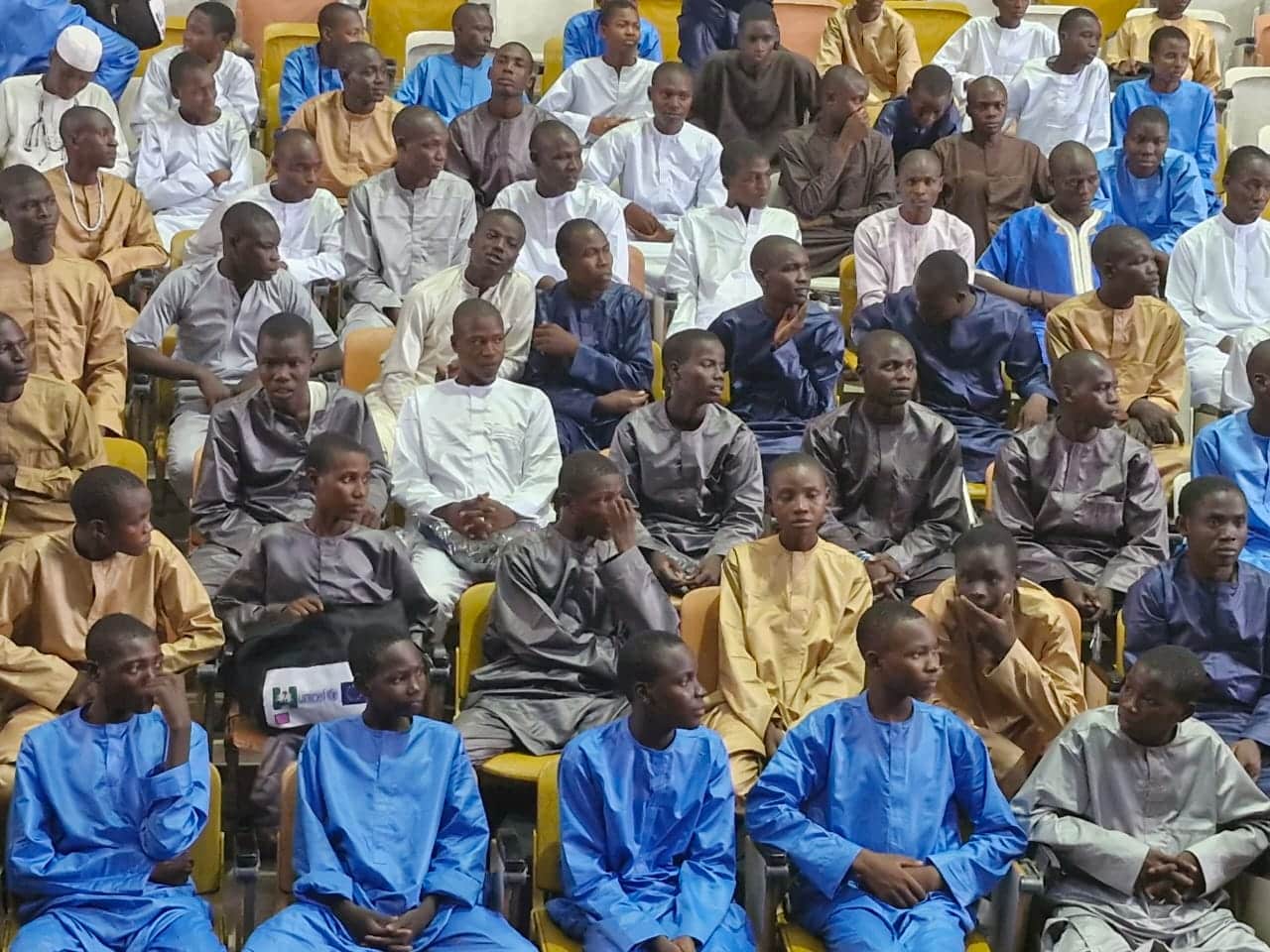
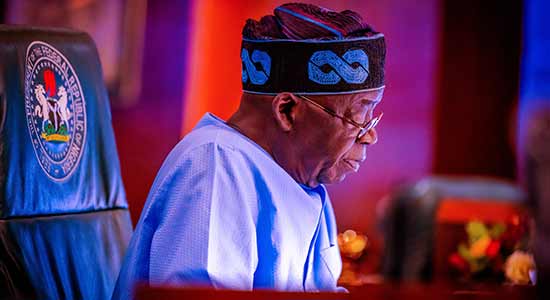

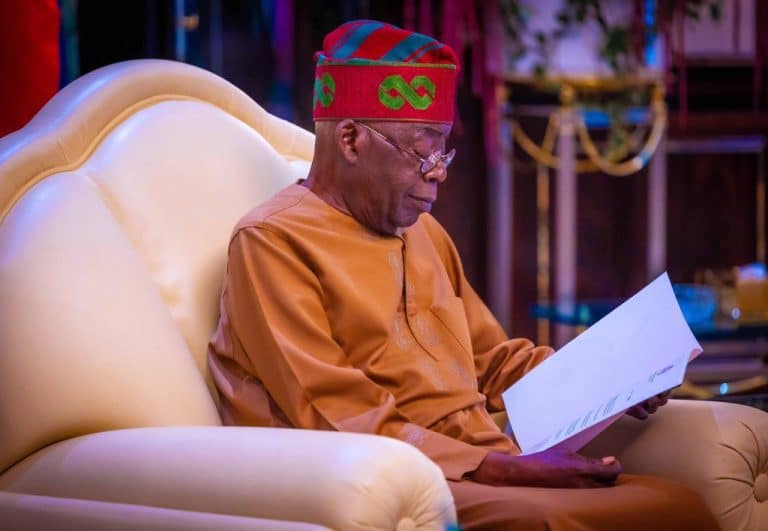



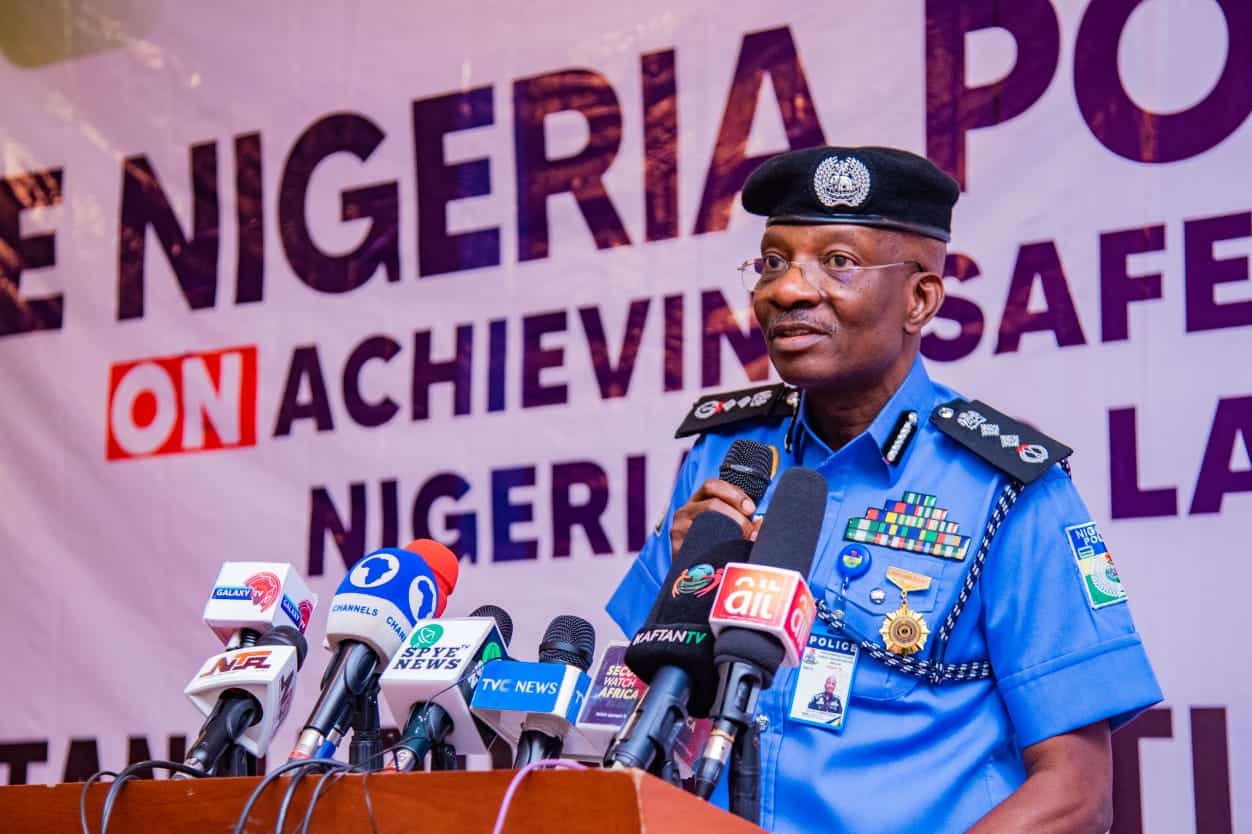
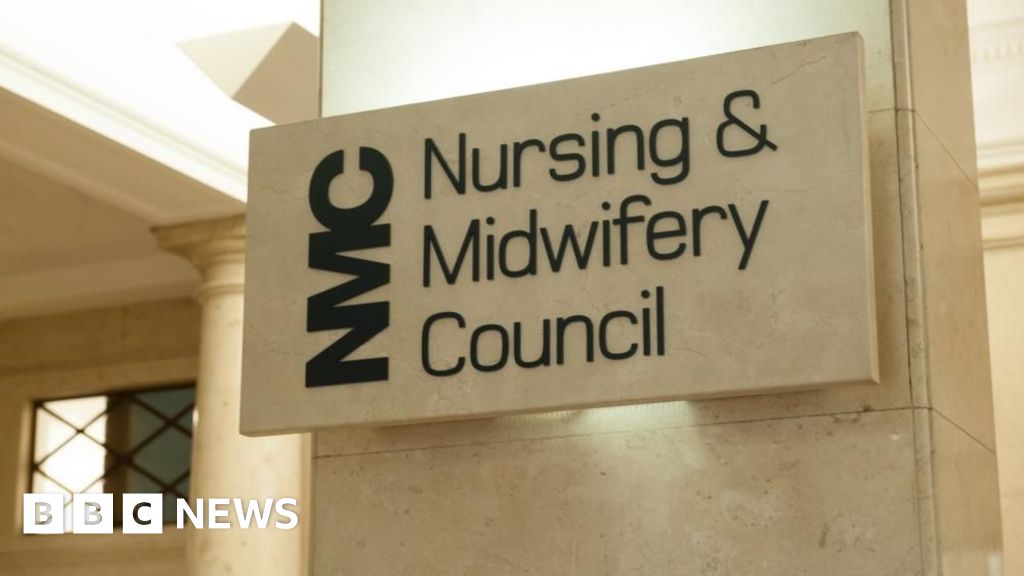
 English (US) ·
English (US) ·